Tie-tongue. Lisp. Stutter.
These are the words that immediately come to mind when we think of ‘speech problems’ — but the field of speech-language therapy is far deeper and more diverse than these.
Paediatric feeding issues, difficulty with swallowing, dysarthria (disturbance of muscular control affecting speech) and dysphasia (difficulty in comprehension or expression of meaning) are only a few of the lesser known speech, language and swallowing disorders — the list is extensive.
“We also tend to forget that speech disorders don’t automatically mean only with children,” adds Keisha Lindsay. “Adults who have had strokes or motor vehicle accidents — they don’t just need physiotherapy, but also a speech-language or occupational therapist for full rehabilitation.”
Keisha Lindsay is the owner of The Therapeutic Workshoppe, a speech-language and occupational therapy practice located just off St. John’s Road in St. Augustine, east Trinidad.
She is also the Chair of the Occupational Therapy and Speech-Language Therapy Board under the Council of the Professions Related to Medicine, the body responsible for regulating the professions of Speech-Language Therapy and Occupational Therapy in Trinidad and Tobago.
A Marriage of Two Passions
For Keisha, the path to becoming a speech therapist emerged out of a natural passion.
“As a teenager, I thought about becoming a nurse or doctor,” she admits. “But my mother, who is a certified occupational therapy assistant, gave me a quick reality check: ‘You don’t like the sight of blood, the long hours won’t work since you like to sleep’… and she was right!”
But what Keisha did love — and had always loved, since the age of a toddler with a blackboard instructing her dolls — was to be a teacher. Speech therapy allowed her to combine both passions: education and medicine.
After completing her Bachelor’s at New York University and her Master’s degree in Speech Therapy and Audiology from the City University of New York’s Queen’s College, Keisha began working at the United Cerebral Palsy – Nassau County. Here, she was exposed to children with severe disabilities, and worked in a collaborative environment alongside physiotherapists, occupational therapists, teachers and teacher aides.
She later went on to work as a speech and language pathologist in the New York City Public School System, and was also an independent evaluator for New York City’s Early Intervention programme. These experiences opened her eyes as to what was lacking in her homeland.
“In the U.S., unless you are literally ‘flat out’, you have to go to school and get an education — even if it may not be a typical experience, at the very least some aspects of learning and socialisation would apply,” she explains. “Whereas in Trinidad, many children with such disabilities remain at home, and miss out on such opportunities because public resources are not yet in place for disabled children and adults to live full lives.”
Inspired to make a difference, she returned to Trinidad and began doing volunteer work as a speech-language therapist. This limited practice soon led to the birth of The Therapeutic Workshoppe.
The Therapeutic Workshoppe

The ladies of The Therapeutic Workshoppe: Marilyn Derrick, Natasha Sexius, Keisha Lindsay, Laura Johnson and Fayola Granderson
Now celebrating its fourth year of existence this July, The Therapeutic Workshoppe is staffed by four speech-language therapists — Keisha and her colleagues Fayola Granderson, Marilyn Derrick and Laura Johnson; and one occupational therapist, Natasha Sexius, who also operates her own practice: The OT Sanctuary, which was established in 2013.
Today, the Workshoppe provides therapy for over 45 families including children from orphanages and foster care homes. All staff are registered in Trinidad and Tobago, and qualified to work with both children and adults.
Traditionally, therapies of this type were only located in Port of Spain. Unlike most other practitioners in the field, The Workshoppe is situated in St. Augustine to be more accessible for those who live as far east as Toco.
The multidisciplinary team also has the added benefit of clustered services — i.e. those who need both services can arrange to have occupational and speech-language therapy back-to-back in the same visit.
Therapeutic intervention is provided in private practice at the Workshoppe, on a limited basis for home visits in the Port of Spain area, and on a consultation basis in public service schools and hospitals on both the islands of Trinidad and Tobago.
“The idea was originally to have public/private partnerships, which we still need to see a lot more of,” Keisha says.
Through her role as the Chair of the Occupational Therapy and Speech-Language Therapy Board, Keisha advocates for the practice of the therapies and their role in our Trinbagonian society.
Speech-Language and Occupational Therapy in T&T
“We are still largely a culture that believes only in physical disabilities,” she states. “There are so many ‘hidden’ disabilities; so many intellectual and developmental disabilities that we ignore as a country.”
She notes that one key step is to have speech-language and occupational therapy in the public service. Under the direction of the Tobago Regional Health Authority, Tobago now has two speech-language therapists and one occupational therapist employed in the public service.
In Trinidad, however, there are no public service practitioners in the field of speech-language therapy, and just one occupational therapist working in the public service.
The Workshoppe and other therapists have been working with Social Work Departments to facilitate a programme to enable families in need to get therapy funded by the Government for a six-month period.
But it is not enough.
“While it is more profitable for a therapist to have a private practice, the reality is that many of us are willing to have public hours part-time, which we can balance alongside a private practice — we just need to get a foot in the door, to demonstrate the real need out there,” she says.
“We can’t touch the kind of need we have unless we go into public service.”
The Way Forward
There has, however, been some recent positive change in the field of speech-language therapy.
2016 will mark the first cohort of Speech-Language Therapists educated in Trinidad and Tobago. It is the first Master’s programme in the Caribbean region for the field; previously, all practitioners had to be educated abroad. This would mean an increase of 11 or 12 therapists — to add to the current number, which stands at only 18.
“I should know — I’ve registered many of them,” Keisha adds, laughing. “And all women, to boot — we need some more men in there!”
Through her role as Chair of the Board, she has been advocating strongly for the importance of referrals, particularly for adults who have had strokes and other debilitating illnesses.
“Many elderly persons do not get the opportunity to work with the therapists they need to help rehabilitate from a stroke,” she explains. “The families may not know about the services, and the doctor may recommend only a physiotherapist, whereas the person may also benefit from a speech-language or occupational therapist.”
Awareness is key — and it is a cause she continues to champion through her dual roles at the Workshoppe and on the Board. She is also concerned with the lack of research in the field specific to the nuances of Caribbean languages and cultures, and intends to be involved with building this body of research.
“As professionals, we are now coming together to establish regulations and ensure professional ethics to better serve our clients; and putting the checks and balances in place to ensure the family understands the services and to make sure the public knows the value of our services,” she states.
“There is a long way to go, not just for us as therapists but for the country on the whole as we deal with disabilities. Thanks to the work of various special needs communities, we are beginning to open our minds to the need for therapies to treat the ‘hidden’ disabilities — so there is a lot of room for growth.”
For more information, contact The Therapeutic Workshoppe at 1-868-463-5146 or [email protected]. You also check out their website www.tworkshoppe.com and their Facebook page.
What You Need To Know
- At The Therapeutic Workshoppe, evaluations, therapies and consultations are provided based on the individual’s needs. Please contact the Workshoppe directly for a quotation for services.
- Be sure to check with your employer — Speech-Language and Occupational Therapies are covered by some group medical insurance plans.
- If you want to ensure that your speech-language or occupational therapist is licensed and registered with the Council of Professions Related to Medicine, email [email protected].
- Children requiring therapy usually come to the Workshoppe twice per week for half-hour sessions. Greater gains are usually seen in higher frequency of sessions, rather than longer sessions, and it is important that the child is able to practice in between sessions with the parents or guardians.
- The Workshoppe ensures that a significant amount of ‘parent and family training’ is done, not just therapy for the child or adult requiring their services. Progress meetings are held, and reports are provided.
- While not all disorders can be ‘cured’ through therapy, many conditions can be significantly improved — muscles can be trained, particularly if the intervention is done at an early stage of the child’s development. In some cases, children may need years of therapy, but the therapy ‘ages’ with the child: goals change from early-life development goals to academic goals as they grow and integrate better with their peers.
- If you are, or know someone who is, interested in pursuing speech-language as a career, these are the requirements in Trinidad and Tobago to be a registered practitioner:
- From the UK, a Bachelor’s degree in Speech-Language Pathology & Audiology
- From the USA and Canada, a Master’s degree in Speech-Language Pathology & Audiology; the Bachelor’s degree is gained first
Read more on The Ministry of Health’s website.








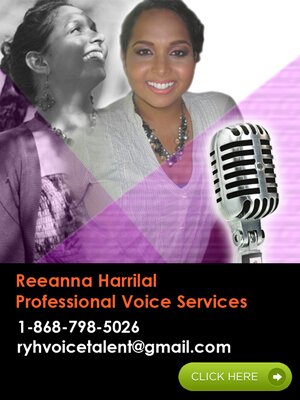

















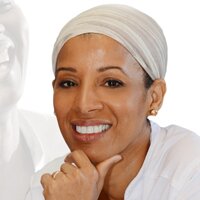
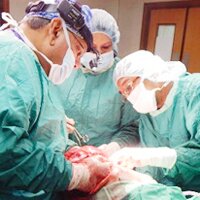
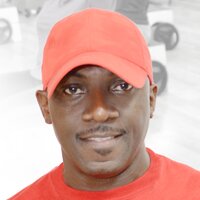
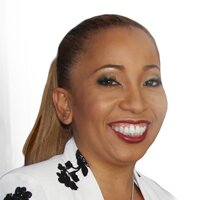
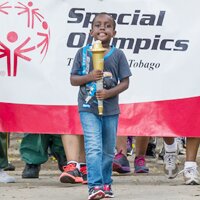





I am not fully qualified or have any experience but what I do have is an autistic son which I lov he ope. My eyes to this spectrum and I always lov teaching kids my dream one day is to become a ot try every local avenue to obtain this but was never successful I love working with special kids I try to learn as much on line and do online courses in this field I would love to full filled my dreams any suggestions thanks
Hi Denise, check out the Ministry of Health’s website for more information on pursuing a career in this field: http://www.health.gov.tt/sitepages/default.aspx?id=207%20
My son is two years and eight months old and he barely speaks. He says a few words in between his babbling but he listens and understands the language. I would like anyone who has an idea of possible causes of this to please reply. That you
Hi Ria, please contact The Therapeutic Workshoppe directly at 1 868-463-5146 / 625-7263 or [email protected]
Hi, I am a speech and language therapist with a Masters from the Reading University in the UK. Presently, I am the only speech and language therapist in Dominica. I work in isolation and would appreciate being affiliated with others in the region.
Hi Octavia, thanks for reaching out. Please contact Keisha Lindsay directly at The Therapeutic Workshoppe at 1-868-463-5146 or [email protected]. You also check out her website http://www.tworkshoppe.com
Thanks, I will contact her.
Hi Octavia. I’m a Speech-Language Pathologist and I have decided to relocate to the Caribbean. I’m considering either St. Maarten or Dominica, so it’s nice to find someone on here from Dominica. I hope you don’t mind me asking a few questions. If I wanted to work in the field who would I seek for employment in Dominica? What is the percentage of children and adults who need the services on the island? Are there many children on the spectrum? Do you perform a lot of feeding/swallowing evaluations and treatments? Looking forward to hearing from you.
Hi I turned sixteen in October last year but, every since I started talking I developed a stammer that I so much dislike. I am falling into a career that requires me to communicate with people from all over the world with different languages and accents, and i would love to speak properly out loud and be able to express my opinions and ideas to my companions. Any suggestions? That’ll be great.
Hi Stephanie, wishing you all the best with your career. To discuss your needs in detai,l please contact Keisha directly at 1-868-463-5146 or [email protected]
thanks for your informative website. i came across it by chance as i was helping my just turned 8 years old daughter learn a song for her class project. she has what i think is a lisp ..she pronounces her ‘s’ as ‘t’ or ‘x’.. she is constantly improving but i believe her speech can be greatly improved with therapy. where in St Augustine are you located? any Landmarks? thank you .
Hi DJ, I believe the location has changed recently. Please contact Keisha directly for details on where the therapists can now be accessed: 1-868-463-5146 or [email protected].
Hi I’m a Speech-Language Pathologist in the U.S and I’m considering relocating to the Caribbean to live. Can you please tell me about how much do SLPs in the Caribbean make so I can have an idea when I interview for jobs?
Hi Rena, please contact Keisha directly at 1-868-463-5146 or [email protected].
Thank you.
Hello everyone! It seems that speech therapy and OT services are only available privately in Trinidad. I’m sure that you all can appreciate that the cost of such services privately will be a significant financial burden on the average family. Is there any form of financial help from the government for families in need of these services? Thanks!
Hi my son is 2 years and 3 months and not speaking as yet he only says vowels like ah eh oh ou. and make noise sometimes he says some things but don’t understand I would like to know what to dobcan I get your advice I will really appreciate it thank u
Hi Reshma, please contact Keisha directly at 1-868-463-5146 or [email protected]
My son is autistic he has few words had a second opinion in London and the recommendation is at least 5 sessions of speech and language therapy 2 session of speech and language and sensory integration therapy per week. I cannot compare Trinidad to London where all services are linked to the schools. I am desperate to find a school in trinidad to cater for his needs as my husband refused to live abroad temporarly. I am relocating to Trinidad soon and searching for the right school for him.
Please help me.
Hi Angela, please contact Keisha directly at 1-868-463-5146 or [email protected]